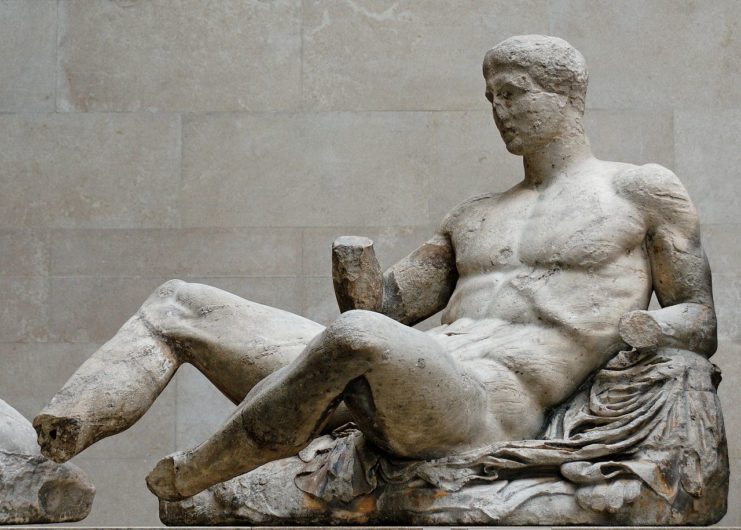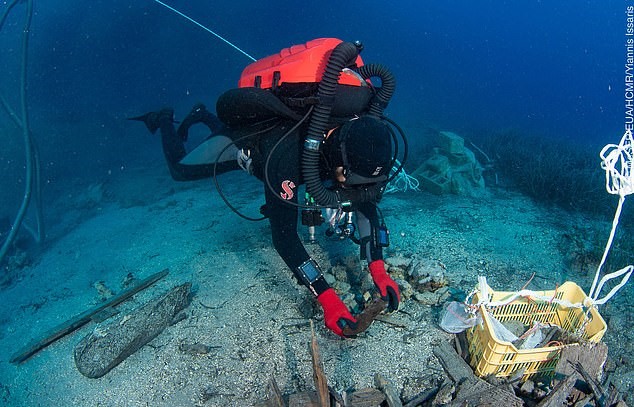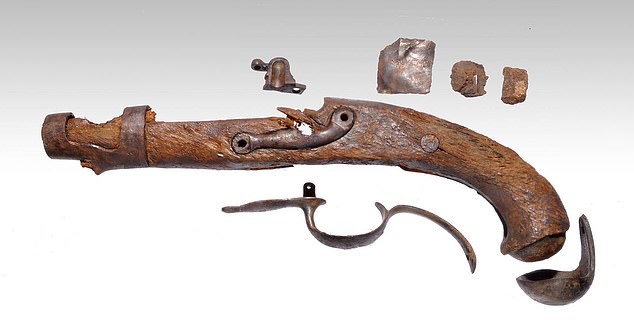Archaeologists who are researching the shipwreck of the Mentor have retrieved more artifacts from the famous wreck including the leather sole of a shoe and a flintlock pistol.
The Mentor is the ship that Thomas Bruce, Earl of Elgin, used to send to Britain artifacts that he had removed from the Greek Parthenon while he served as Britain’s ambassador to the Ottoman Empire in Constantinople.
The ship was carrying marble sculptures which had been chipped from the Parthenon in Athens. After the sinking, the marbles were retrieved and sent on to Britain by Lord Horatio Nelson.
Now known as the Elgin Marbles, they are part of the collection in the British Museum.
This is a controversial situation as many believe that the British stole the sculptures from Greece and should return them.

Dr. Dimitris Kourkoumelis is working with the group that is researching the wreck. He said that they have found numerous items over the course of their research since 2011 including belt buckles, coins, chess pieces, tools, and a theodolite. A theodolite is an instrument for taking measurements. This one is believed to have belonged to William Martin Leake, a topographer, artillery captain, diplomat and antiquarian who is known to have been one of the twelve people on board the ship when it sank.
All twelve people survived the sinking with the help of people from a nearby town.
Dr. Kourkoumelis said that it has been difficult negotiating the return of the Elgin Marbles. Part of the reason is that the British Museum is an independent entity so they have had to negotiate separately with the British Museum and the British government.
Also, the marbles are one of the most valuable collections in the British Museum so they are reticent to let them go.
Finally, the ship sunk near Kythira which was an independent Greek state which was a protectorate of Great Britain at the time. Even Lord Byron wrote a poem at the time which accused Elgin of robbing the Greeks.
The British Museum’s position is that the artifacts were legally removed from Greece so it has no reason to return them. They point out that the British Parliament investigated the claims that the sculptures were removed illegally and found that there was no basis to the claims.

In fact, authorities in both Athens and London were well aware that Elgin was taking the sculptures and they did nothing to stop him at the time.
On the other hand, everyone knows where the marbles came from and the Parthenon is a UNESCO World Heritage site, so the Greeks have a good case for their return.
In the end, it is possible that Lord Elgin was within his legal rights to send the marbles to England. But Dr. Kourkoumelis emphatically denies that Elgin had any ethical right to take the artifacts.
Another Article From Us: Historic Sci-fi Legend to make Gaming Debut, in John Carter: Warlord of Mars
The history of the Mentor is not so clear cut as the marbles it was carrying. It is believed to have been built in the United States. Following the War of Independence, the French took the ship and used it to carry cargo in the French fleet. The British captured it in the British and the French War. They didn’t want it so they sold it to Lord Elgin.
